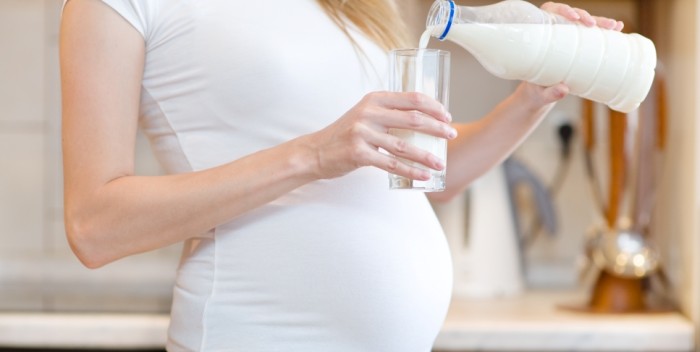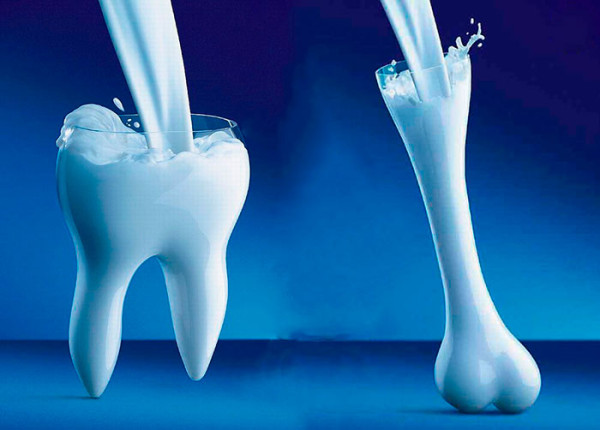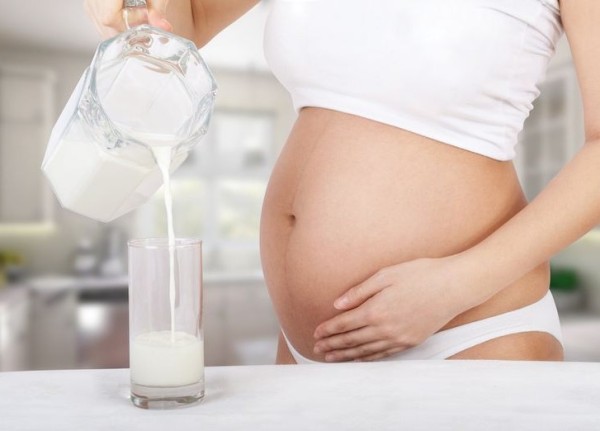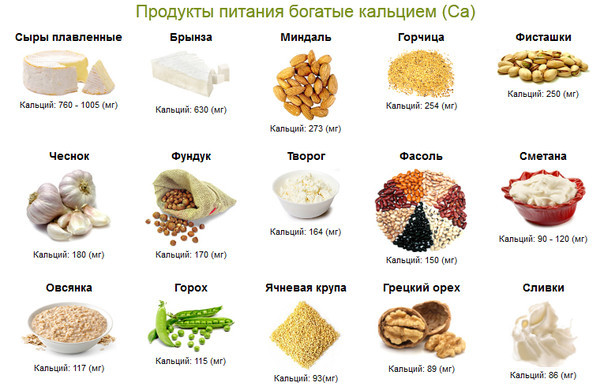Calcium during pregnancy
During pregnancy, a woman's body needs many vitamins and minerals. One of these important components is calcium. Its importance can hardly be overestimated for the full development of the baby and for maintaining the health of the expectant mother.
Content
Role of calcium in pregnancy
The value of this substance for good human health is very great. Calcium is necessary to strengthen the skeleton of a woman, which is under increased stress during pregnancy. It also has a positive effect on the functioning of the female nervous system. This substance is involved in neuromuscular transmission, preventing overstrain of muscle tissue and the occurrence of cramps in the muscles of the legs.
Calcium affects the ability of the blood to clot. Therefore, it is necessary to maintain the concentration of calcium in the body at an optimal level to avoid heavy bleeding during childbirth. In addition, he takes part in metabolic processes in the body and is necessary to maintain normal glucose concentrations and reduce the level of harmful cholesterol.
Without calcium, it is difficult to imagine the normal development of fetal bone tissue. With a low level of this substance in the body of a pregnant woman, a newborn child is more likely to develop rickets. Calcium is involved in the formation of many vital organ systems of the fetus and is necessary for the normal intellectual development of the baby.
What is the risk of calcium deficiency during pregnancy
During the period of bearing a child, a woman needs daily calcium intake into her body. The fact is that this substance in the human body does not accumulate "in reserve", its excess is excreted along with urine if there is too much calcium in food.
A child developing in the womb needs a constant intake of calcium. Therefore, with a lack of it, the mineral comes from the mother's bone tissue. This leads to the leaching of calcium from the woman's bones and negatively affects her health. To ensure the full assimilation of the mineral, vitamin D must also enter the body along with food or under the influence of sunlight.
Lack of calcium causes the following changes in a woman's body during the period pregnancy:
- Weakened condition of the skin, hair and nail plates.
- The woman becomes irritable, she develops insomnia.
- Teeth deteriorate and decay, caries occurs.
- Diseases of the musculoskeletal system may develop, and the risk of fractures increases.
- In the initial stage of pregnancy, a woman has increased toxicosis, there are bouts of nausea with vomiting.
- During childbirth, the risk of complications increases, there may be premature birth or insufficient labor activity.
- The risk of preeclampsia increases.
- Convulsiveness of the muscle tissue of the lower extremities.
If the calcium intake is insufficient, a woman may feel a strong urge to chew on a piece of chalk. In other pregnant women, a lack of this mineral can cause frequent colds.
Calcium norm during pregnancy
During the entire pregnancy, the baby's body should accumulate from 25 to 30 grams of calcium. During the time spent in the mother's womb, the baby's body produces special hormones, the purpose of which is to independently accumulate calcium. With this in mind, and also taking into account that an adult needs an intake of this mineral in an amount of 1 gram per day, it is possible to determine the amount of calcium necessary to maintain the health of the expectant mother and the full development of the fetus.
Along with food, a woman's body should receive about one and a half grams of calcium. Of this amount, 300 mg will pass into the child's body and protect him in the future from the development of rickets, and the rest will remain in the mother's body, the excess will be excreted in the urine.
Calcium preparations during pregnancy
If, for some reason, there is a lack of calcium in the body of the expectant mother, the doctor prescribes appropriate medications to compensate for the deficiency of this mineral. The drugs available that do not have side effects include:
- Calcium gluconate.
- Veprena.
- Marine calcium.
- Vitacalcin.
- Ostalon.
- Calcium Sandoz Forte and others.
In the first trimester of pregnancy, up to 12 weeks, a woman usually has enough of the amount of calcium that enters the body along with food. But later, almost everyone pregnant some calcium supplement is prescribed.
Medicines with calcium do not harm the health of the expectant mother and do not harm the development of the fetus. Only in very rare cases can there be a negative reaction of the woman's body to such drugs. Usually, these manifestations relate to the work of the gastrointestinal tract, for example, diarrhea, flatulence or constipation may occur. In some cases, an allergic reaction or individual intolerance is possible. While taking medications with calcium, it is necessary to observe how the body reacts to them. If undesirable effects are observed, you must stop taking the pills and consult your doctor about this. Since it is impossible to completely abandon the intake of calcium into the body, the doctor will simply advise replacing the drug with a more suitable one.
With the appropriate appointment, calcium preparations must be taken regularly, not only to the very childbirth, but also after the birth of the baby. It is mandatory to take such medicines during breastfeeding. The body loses a lot of minerals due to the birth of a child and the release of the placenta. The first place in this list is occupied by calcium, therefore, it is impossible to stop taking the drug prescribed for a woman.
Calcium foods during pregnancy
In addition to taking appropriate medications, a pregnant woman should follow a diet that enriches the body with this mineral. The diet must be varied and complete, it must contain fruit.
The largest amount of calcium is contained in products made from milk. Just a couple of glasses of curdled milk will provide the body with a daily dose of calcium. But most of all calcium is found in cheese. For the body to better absorb calcium from dairy products, they must be fresh and free from artificial ingredients.
Some types of vegetables and herbs contain a lot of calcium. From plant products, you should pay attention to cabbage and all legumes. In addition, dill, green onions and broccoli are high in calcium. Every day you need to include vegetable salads with fresh sour cream dressing in your menu. This will avoid a lack of calcium and other nutrients in the body.
Another group of foods that contain a lot of calcium is seafood. Among them, oysters and shrimps are in the first place in this indicator. However, in some people, seafood can provoke an allergic reaction. This must be taken into account when using them.
For better absorption of the mineral, all foods with calcium are best consumed after the main meal, for example, as a snack. The ideal option is to eat a portion of cottage cheese or light vegetable salad for an afternoon snack. On an empty stomach, this mineral is absorbed worse.






